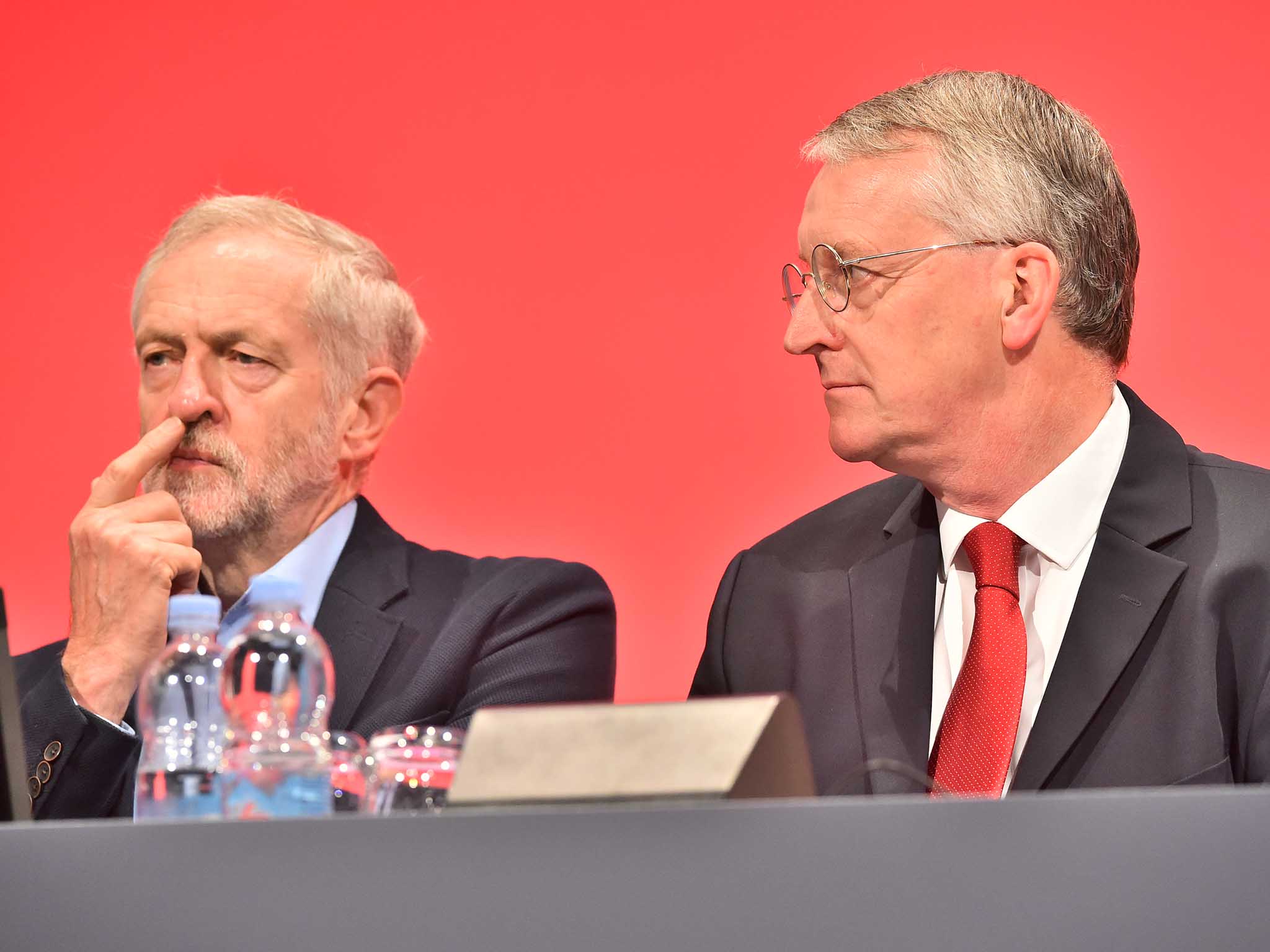Anti-Corbyn Labour MPs are privately discussing splitting the party in two - and it could work out for them
Would such a breakaway Labour party break the mould this time? It might. The stranglehold of the two main parties is broken; look at the impact of Ukip and the SNP. The referendum showed how traditional party loyalties have melted


We now have two Labour parties – the members’ party led by Jeremy Corbyn and the parliamentary one. There is serious talk in both camps that this widening gulf could become a formal split. If Corbyn defeats his challenger in the looming leadership contest, that is the only way to resolve this fight to the death.
It would be wrong for Corbyn’s enemies within to try to keep him off the ballot paper. There are conflicting legal opinions about whether an incumbent leader needs to get the 50 nominations from MPs and MEPs required by a challenger. After only 40 of Labour’s 229 MPs backed the leader in Tuesday’s no confidence motion, it is not certain Corbyn would get enough support to run. The result also means that one option previously open to Corbyn – to fall on his sword and support his close ally John McDonnell in the ensuing leadership election – is closed, since the shadow Chancellor might not secure enough MPs to get on the shortlist. A stitch-up to keep Corbyn out of the race would make a formal split more likely. Whatever his critics think of him, he deserves the right to fight to keep his job in an election.
MPs close to Corbyn dismiss rumours that he wants to throw in the towel and is being held prisoner by his praetorian guard. They say Corbyn is genuinely buoyed up by the strong support he is getting from Labour members, many of whom are angry about the MPs’ plot to topple him at a time when the country needs stability rather than more chaos. His MP critics claim that many of the members who gave Corbyn his overwhelming 60 per cent mandate last September are now turning against him because they realise he is not up to the job. That assertion will be tested in the leadership election. It could be a very close contest.
If Corbyn wins again, he might be tempted to entrench the left’s grip on the party by pushing through reforms to hand more power to the members – including the mandatory reselection of MPs and depriving MPs of their nominating rights in future leadership elections. That could be the catalyst for a breakaway by many of the MPs who refused to back Corbyn this week. They would feel they had nothing to lose since they would face deselection by local party activists before a general election – even though standing against their own party would be done by many with a heavy heart.
MPs convinced that Labour would be massacred if Corbyn led it into a general election are privately discussing a new party. They are not all “bitter Blairites”, as the Corbynistas claim, and include some on the soft left who think breaking up might be the only way to save Labour from death under Corbyn. Mary Honeyball, a Labour MEP, said 200 Labour MPs could form a new party if Corbyn were re-elected, and that she would join them if necessary.
The Labour defectors would be doomed to be branded the “SDP Mark II,” even though they would try to avoid that by not calling themselves the Social Democrats. The breakaway Gang of Four in 1981 failed to break the mould of British politics (only just) and were condemned as traitors who split the anti-Tory vote and kept Margaret Thatcher in power.
Unlike the remaining socialist Labour Party, which would be depend on the trade unions for money, the breakaway group would be assured of backing by rich individual donors who have shunned the Corbyn-led one, which is in a parlous state financially.
Some Labour MPs believe that a new party would find much common ground on policy with Liberal Democrats and might even merge eventually. The Labour Democrats, perhaps? They might even agree that Britain should re-enter the European Union, which the Lib Dems are already calling for. That would make the next general election interesting. Corbyn’s socialist party would probably keep Britain out of the EU, allowing him to follow his heart.
Would such a breakaway Labour party break the mould this time? It might. Politics is much more volatile than it was in 1981. The stranglehold of the two main parties is broken – look at the impact of Ukip and the SNP. The referendum showed how traditional party loyalties have melted. After the Brexit vote, all the pieces have been thrown up in their air: no one knows where they will land.
Some anti-Corbynites even dream of attracting some Cameron-supporting Conservatives now that they are about to lose power. There were close personal links between Blairites and Cameron’s Notting Hill set, and Cameron extended Blairite public service reforms such as academy schools.
However, I suspect the Tories will unite behind the new leader they elect in September, no matter who it is. The 52-48 vote for Leave has created short-term Tory chaos and cost Cameron his job, but it will be much easier to manage than a 52-48 vote for Remain. That would not have settled the EU issue that has so divided the Tories since Thatcher’s fall in 1990. Suddenly, the casus belli no longer exists.
The terrible irony is that the Conservatives, having imposed a needless and disastrous referendum on the country, could emerge from the wreckage in much better shape than a shambolic Labour Party that opposed it.



Join our commenting forum
Join thought-provoking conversations, follow other Independent readers and see their replies